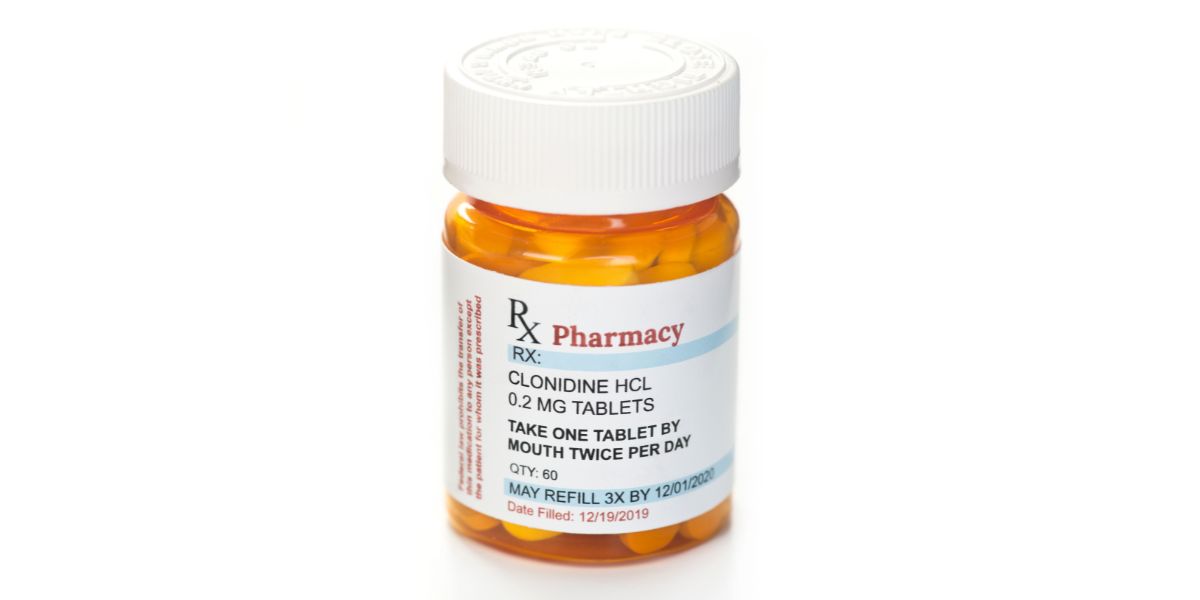Clonidine Overdose Potential

Clonidine is a common prescription medication used to treat high blood pressure and attention-deficit hyperactivity disorder (ADHD). The drug has known benefits but can be harmful if not used correctly, leading to overdose or negative effects.
What Is Clonidine?
Clonidine is an alpha-2 adrenergic agonist that works by stimulating receptors in the brain.
This stimulation reduces the release of norepinephrine, a neurotransmitter that increases sympathetic nervous system activity. Clonidine lowers norepinephrine levels, which decreases sympathetic activity, helps decrease heart rate, and widens blood vessels. This dual action helps lower blood pressure, making clonidine a helpful drug for managing hypertension.
Clonidine is used to treat hypertension and ADHD, especially for patients who don’t respond well to stimulants or can’t use them. It helps by modulating attention and reducing hyperactivity and impulsivity, symptoms commonly associated with ADHD. Additionally, clonidine has off-label uses, including treating anxiety disorders, managing withdrawal symptoms in substance use disorders, and alleviating certain types of pain.
One of the unique aspects of clonidine is its ability to cross the blood-brain barrier and apply its effects on the central nervous system. This characteristic allows it to manage blood pressure effectively and contributes to its ability to modulate other neurological and psychological conditions. Clonidine can help with symptoms such as anxiety, agitation, and muscle aches during opioid withdrawal. This can make the detox process easier to manage.

Adverse Effects of Clonidine
Despite its widespread use and effectiveness, clonidine has various potential adverse effects. The side effects can range from mild to severe, depending on the dosage and individual patient factors.
The most common side effects of clonidine include:
- Dry mouth
- Stomach pains
- Nausea
- Headaches
- Fatigue and drowsiness
- Constipation
- Diarrhea
- Sedation
- Emotional instability
- Agitation
- Decreased sexual activity
In addition to these more common side effects, clonidine can also cause other, less frequent reactions, such as sexual dysfunction and allergic reactions. Patients should know about possible side effects and talk to their doctor if they have any worrying symptoms.
Clonidine Overdose
An overdose of clonidine or clonidine poisoning can happen because of accidental ingestion, intentional misuse, or dosing errors, such as clonidine compounding error. The clinical presentation of clonidine overdose can vary widely, but it typically involves exacerbation of the drug’s pharmacologic effects.
Signs and Symptoms of Clonidine Overdose
- Slow Heart Rate (Bradycardia): Clonidine’s ability to reduce heart rate can be beneficial in hypertension but may pose risks for certain people with slow heart rate. Bradycardia can lead to symptoms such as dizziness, lightheadedness, and, in extreme cases, heart failure. Patients with pre-existing heart conditions should use clonidine cautiously, and regular heart rate monitoring is advised.
- Central Nervous System (CNS) Depression: In higher doses, clonidine can lead to CNS depression, characterized by lethargy, confusion, and even loss of consciousness. This effect is amplified when combined with other CNS depressants like alcohol, benzodiazepines, or opioids. CNS depression can significantly impair cognitive and motor functions, posing a danger to the patient and others.
- Respiratory Depression: Although rare, clonidine can cause respiratory depression, a severe condition where breathing becomes slow and insufficient. This is a medical emergency requiring immediate attention. Respiratory depression can be particularly dangerous in people with pre-existing respiratory conditions or when combined with other respiratory depressants.
- Hypotension: While lowering blood pressure, excessive hypotension can occur, leading to symptoms like fainting and shock. This risk is particularly high in elderly patients or those taking other antihypertensive medications. In severe cases, hypotension can lead to organ damage because of inadequate blood flow.
Management and Treatment of Clonidine Overdose
The treatment of clonidine overdose primarily involves supportive care, focusing on stabilizing the patient and preventing complications. This includes monitoring vital signs and providing interventions as needed. For severe bradycardia, medications like atropine may be administered to increase heart rate. In cases of low blood pressure, intravenous fluids, and vasopressors might be required to maintain adequate blood pressure.
Naloxone (NARCAN), although traditionally used to reverse opioid overdoses, may sometimes be employed in clonidine overdoses because of its ability to counteract CNS depression. However, its efficacy in this context is not universally established, and clinical judgment should guide its use. The decision to use naloxone should consider the patient’s overall clinical condition and the presence of other CNS depressants.
Healthcare providers may also use activated charcoal if the overdose is identified early enough, typically within one to two hours of ingestion. Activated charcoal can help bind the drug in the gastrointestinal tract, reducing absorption and the overall dose that reaches systemic circulation.
In severe cases, the patient may require intensive care, including mechanical ventilation and continuous cardiac monitoring. The length of hospital stay will depend on the severity of the overdose and the patient’s response to treatment.
Clonidine is prescribed beyond its primary indications; it is also utilized in managing withdrawal symptoms for various substances, including opioids and alcohol. However, the misuse of clonidine, either recreationally or because of a misunderstanding of its effects, can lead to significant health risks, including overdose, usually involving heart failure.
For people struggling with substance use disorders, seeking professional help is crucial. Treatment plans often include medical supervision to manage withdrawal symptoms and prevent complications safely. Comprehensive care typically involves a combination of medication management, behavioral therapies, and support systems designed to address both the physical and psychological aspects of addiction.

Substance Use Disorder Treatment at Northridge Addiction Treatment Center
Recovery is a personal journey, and it’s essential to have qualified professionals to develop a plan tailored to your specific circumstances, needs, and goals.
At Northridge Addiction Treatment Center (NATC), we recognize that what works for one person may not be suitable for another. Whether you, a family member, or a loved one is facing substance use disorder, we are here to help.
Genuine and compassionate support is crucial for a meaningful and fulfilling recovery. At NATC, our personalized, evidence-based approach to addiction treatment ensures each resident receives exceptional care that addresses the root causes of their substance use disorder, creating a strong foundation for lifelong recovery.
Residents at NATC learn to identify early warning signs of relapse and develop robust coping skills to prevent it, ensuring the highest chances of success.
Contact us today for a free consultation. Our compassionate and understanding treatment specialists are ready to assist you.
Find Meaningful Recovery
Our caring and compassionate specialists are eager to help you comfortably navigate this journey to recovery. Our individualized treatment plan, programs, and therapies may be a perfect match for you or your loved one. Let us assist you in living the happy life you deserve. It starts with a phone call.




